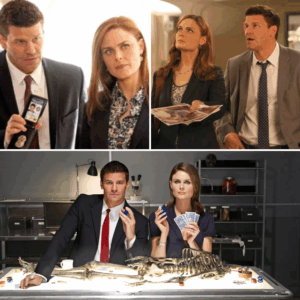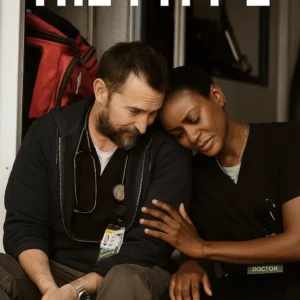HBO’s The Undoing (2020), starring Nicole Kidman and Hugh Grant, is a psychological thriller that unfolds like a beautifully wrapped gift, its glossy exterior concealing a venomous core of deception, privilege, and betrayal. Adapted from Jean Hanff Korelitz’s 2014 novel You Should Have Known and brought to life by creator David E. Kelley and director Susanne Bier, this six-episode miniseries captivated audiences with its star power, luxurious production values, and a murder mystery that kept viewers guessing until the final reveal. Premiering on October 25, 2020, The Undoing became HBO’s most-watched show of the year, gaining viewership each week and sparking heated discussions about its twists, performances, and themes of wealth and justice. Here’s a deep dive into why this stylish, suspenseful series remains a compelling, if imperfect, exploration of human nature’s darker corners.
A Glittering Facade in Manhattan’s Elite
Set against the snowy, opulent backdrop of Manhattan’s Upper East Side, The Undoing centers on Grace Fraser (Nicole Kidman), a poised therapist, and her charismatic husband, Jonathan Fraser (Hugh Grant), a pediatric oncologist. Their seemingly perfect life—complete with a precocious son, Henry (Noah Jupe), and a lavish brownstone—unravels when Elena Alves (Matilda De Angelis), a young mother from Spanish Harlem whose son attends the same elite Reardon School as Henry, is found brutally murdered in her art studio. The series opens with a glimpse of this idyllic world, where Grace navigates her role on the school’s auction committee and Jonathan charms with his roguish wit, only to shatter this illusion with a murder that exposes the cracks beneath their polished surface.
The show’s aesthetic is a character in itself. Directed by Susanne Bier, known for The Night Manager and Bird Box, The Undoing is drenched in visual splendor. Bier’s camera captures New York’s wintery elegance with high-angle shots of cavernous brownstones and intimate close-ups of Kidman’s expressive eyes, often framed by her enviable collection of colorful coats. As Variety noted, the series is “ably acted and handsomely made,” with cinematography that makes even the most unsettling moments feel luxurious. The juxtaposition of wealth and violence—black-tie galas and gruesome crime scenes—creates a Hitchcockian tension, evoking classics like Rear Window or North by Northwest. This glossy veneer is the perfect wrapping for a story that’s as much about privilege as it is about murder.
Nicole Kidman and Hugh Grant: A Powerhouse Duo
At the heart of The Undoing is Nicole Kidman’s portrayal of Grace Fraser, a therapist whose life crumbles as she discovers her husband’s secrets. Kidman, also an executive producer, delivers a performance that balances flinty determination with raw vulnerability, a hallmark of her roles in David E. Kelley’s previous hit, Big Little Lies. As Variety observed, she excels at playing “a woman who’s equal parts flinty determination and distraught pain,” her face conveying shock and resolve in equal measure. Grace’s journey—from a confident professional to a woman grappling with betrayal—anchors the series, though critics like Roxana Hadadi of Vulture argued her character lacks the introspective depth of her Big Little Lies counterpart, Celeste Wright, making her feel like a “hollow center” at times.
Hugh Grant, in a career-defining turn, plays Jonathan Fraser with a beguiling mix of charm and duplicity. Known for romantic comedies like Notting Hill, Grant leans into his “Grant-aissance,” as IndieWire dubbed it, embracing a darker, more complex role. His Jonathan is both endearing and unsettling, his pursed half-smile and downward glances oscillating between adorable and deceptive, as The Guardian noted. The chemistry between Kidman and Grant, who had known each other since their early 20s, lends authenticity to their portrayal of a couple whose comfort is shattered by a single act. Grant’s ability to make Jonathan likable despite his flaws keeps viewers questioning his guilt, a key driver of the series’ suspense.
The supporting cast elevates the drama further. Donald Sutherland, as Grace’s wealthy father Franklin Reinhardt, exudes old-money authority, his sharp performance grounding the series’ exploration of privilege. Noah Jupe, as Henry, brings heartbreaking nuance to a child caught in his parents’ unraveling world. Matilda De Angelis makes a striking impression as Elena, her brief but haunting presence setting the mystery in motion. Lily Rabe, as Grace’s friend Sylvia, and Noma Dumezweni, as attorney Haley Fitzgerald, add depth, though critics noted the ensemble is underutilized in a story focused heavily on the Frasers.
A Whodunit with Twists and Flaws
The Undoing thrives as a psychological thriller, blending classic “whodunit” elements with marital drama. The murder of Elena Alves, discovered in a blood-soaked studio, sets off a chain of revelations: Jonathan’s affair with Elena, his lies about his past, and his status as the prime suspect. Each episode ends with cliffhangers—paternity tests, betrayals, or shocking courtroom moments—that keep viewers hooked, as CNET praised for its addictive quality. David E. Kelley’s writing, while sometimes criticized for prioritizing twists over character depth, crafts a narrative that keeps audiences guessing. As Heaven of Horror noted, the series is a “dark tale that features murder and lots of mystery,” revealing characters’ true colors in shocking ways.
However, the series isn’t without flaws. Critics on Rotten Tomatoes, where it holds a 75% approval rating, lauded its performances and production but found the writing and pacing uneven. Vulture’s Hadadi criticized the shallow characterization of Grace, arguing that the focus on “unbelievable twists” undermines her development. IndieWire called the plot “way-too-simple,” overly fixated on whether Jonathan is guilty without exploring broader themes or the Alves family’s grief. The finale, in particular, drew mixed reactions, with some, like This Is York, finding it “a bit of a let down” despite the show’s overall engagement. Others, like New Times San Luis Obispo, praised its “delicious mystery” filled with red herrings and mental knots.
The series also sparked debate about its portrayal of privilege. Grace’s access to wealth—evident in her father’s Fifth Avenue apartment and the hiring of top attorney Haley Fitzgerald—raises questions about justice and class, but the show often glosses over these themes, as Variety pointed out. The Atlantic’s Eve Gerber criticized its glamorization of domestic violence, noting that the narrative prioritizes production values over deeper social commentary. Despite these critiques, the show’s ability to keep viewers guessing—suspecting everyone from Jonathan to Grace to Henry—earned it praise as a “grippingly involving ride”.
A Cultural Phenomenon in 2020
The Undoing was a cultural juggernaut, becoming HBO’s first series to gain viewership weekly and surpassing Big Little Lies as the network’s most-watched show of 2020. Its UK premiere on Sky broke records previously set by Game of Thrones, reflecting its global appeal. Social media buzzed with discussions about Kidman’s wardrobe—those long, vibrant coats—and the show’s twists, with X posts praising the suspense while some, like user @connieansaldi, noted Kidman’s expressionless performance due to cosmetic procedures. The series’ pre-COVID setting, where characters mingled mask-free at galas, added a nostalgic allure, as CNET observed.
Nicole Kidman’s haunting rendition of “Dream a Little Dream of Me” in the opening credits, a choice director Susanne Bier championed, became a talking point, showcasing her multifaceted talent. The series’ exploration of trust, betrayal, and the fragility of perfection resonated with audiences, especially in a year marked by uncertainty. As Kidman told Marie Claire, the story’s appeal lay in showing “these worlds separate” and the ability to “buy your justice,” a theme that hit differently in 2020’s social climate.
Why The Undoing Endures
The Undoing is a beautifully crafted paradox: a glossy thriller that’s both addictive and flawed, stylish yet sometimes shallow. Its strength lies in its performances—Kidman’s brittle elegance, Grant’s slippery charm, and a supporting cast that adds texture to a privileged world. Susanne Bier’s direction infuses the series with a Hitchcockian edge, making every frame feel like a clue. While the writing occasionally falters, prioritizing twists over depth, the show’s ability to unravel like a venomous gift keeps viewers invested. As The Guardian put it, its “stellar performances make it truly gripping”.
For those craving a psychological thriller that blends marital drama with murder, The Undoing is a must-watch. Available on Max, it’s a six-episode journey that’s perfect for a weekend binge, offering suspense, star power, and a glimpse into the dark side of privilege. Whether you’re drawn to Kidman’s emotive close-ups, Grant’s roguish allure, or the mystery’s relentless pace, The Undoing delivers a stylish, suspenseful experience that lingers long after the final twist.





